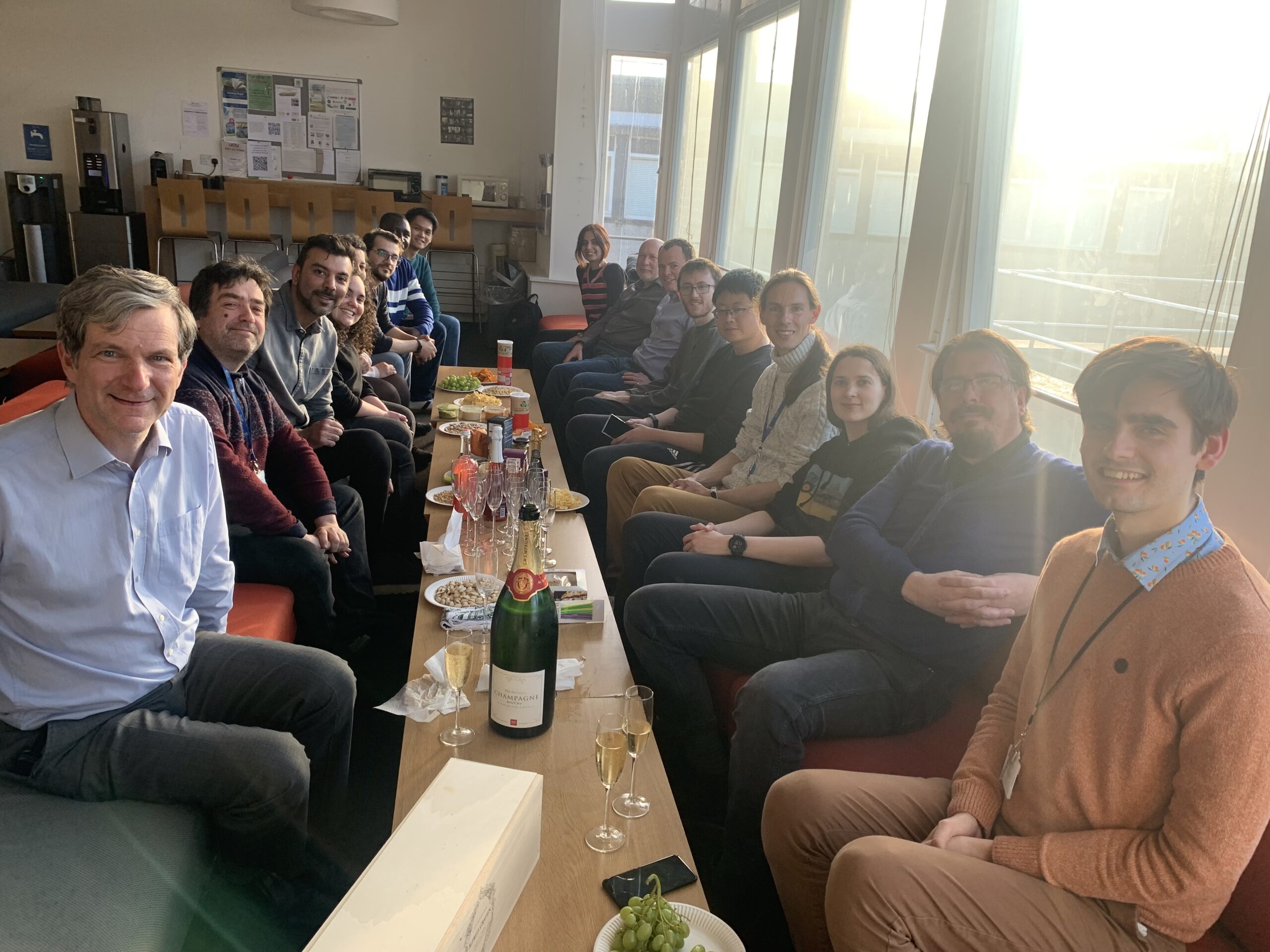
A champagne celebration
Yesterday the group celebrated the publication of the new nature paper with a Jeroboam of Champagne!

Yesterday the group celebrated the publication of the new nature paper with a Jeroboam of Champagne!
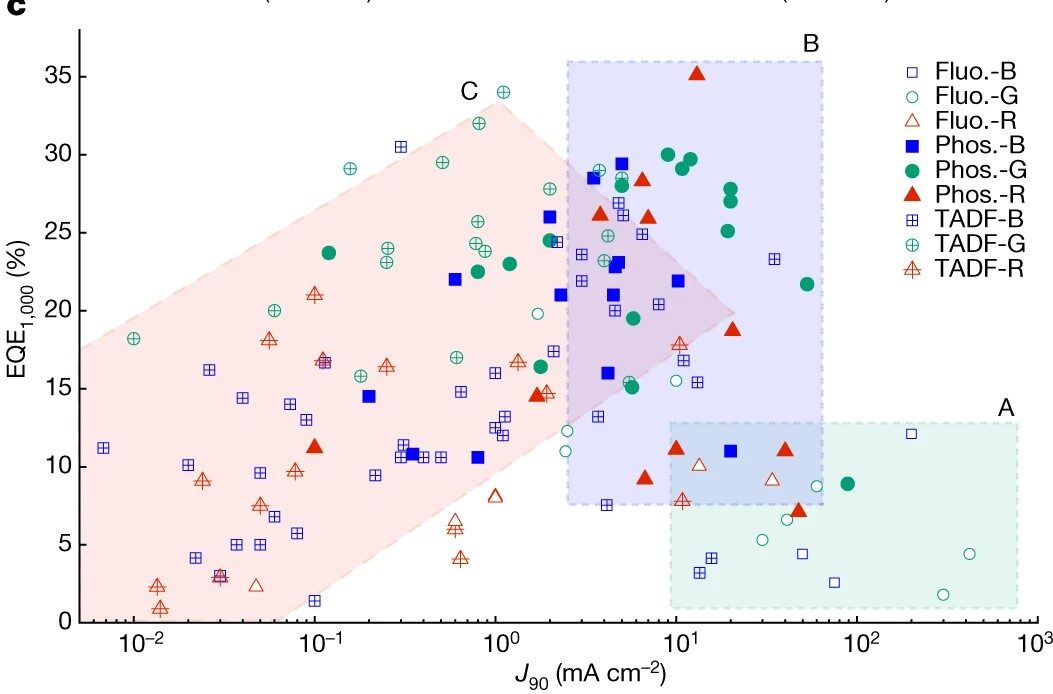
Congratulations to Stefan, Leon, Eli and Ifor on their new paper “A figure of merit for efficiency roll-off in TADF-based organic LEDs” now published in Nature! DOI: 10.1038/s41586-024-07149-x
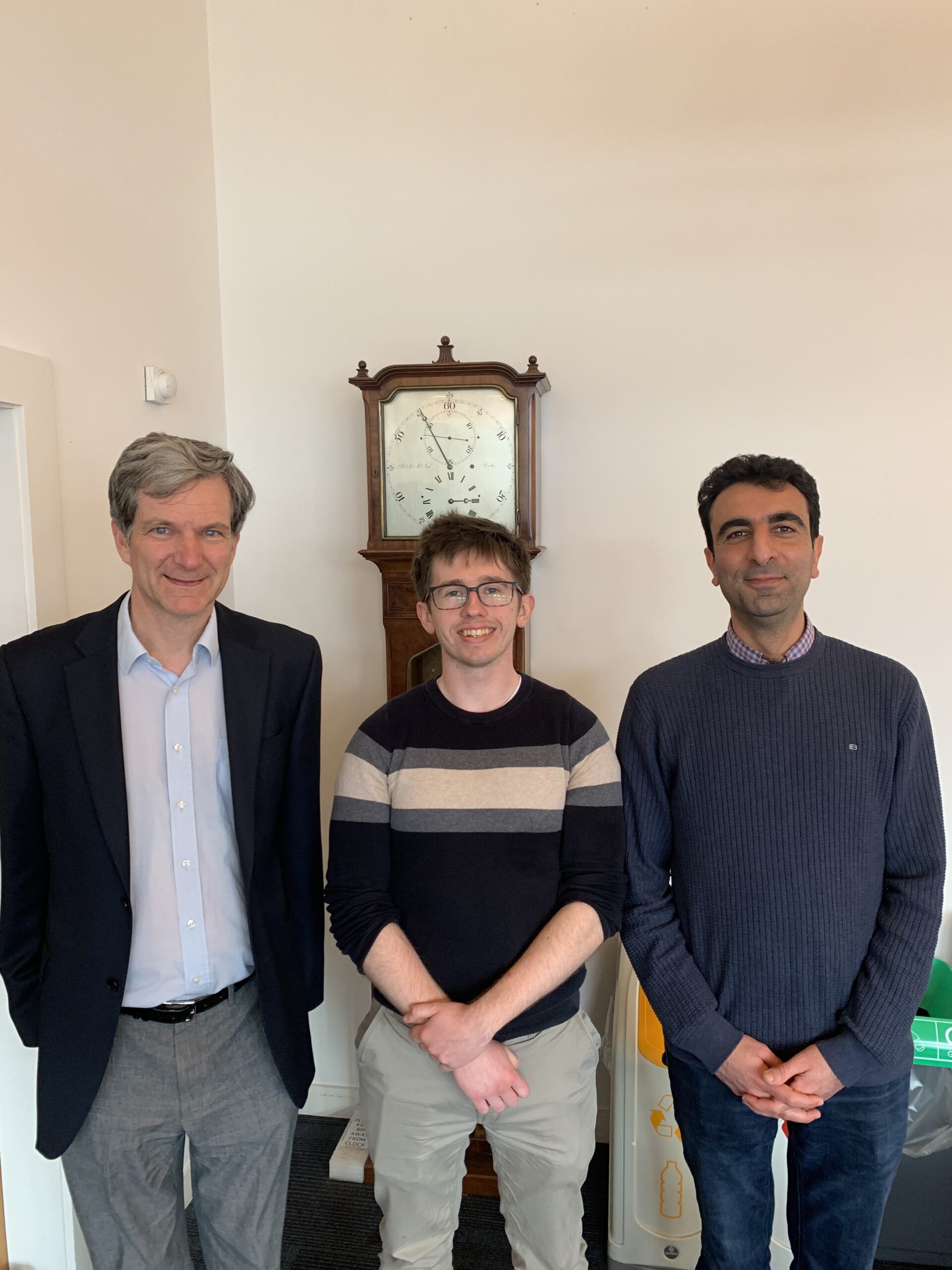
Congratulations to Dr Peter Brown on completing his PhD viva! We are all very proud of him, especially his supervisors Prof Eli Zysman-Colman and Prof Ifor Samuel. Thanks also to external examiner Prof Ardalan Armin.
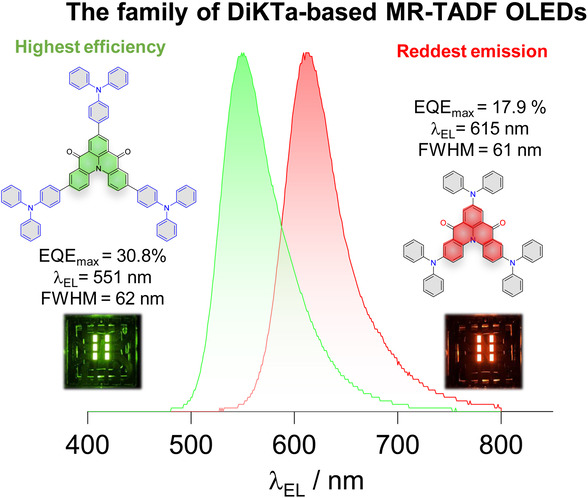
Congratulations to Sen, Abhishek, Kou and Junyi on their recent OLED materials work being one of the most cited papers in Angewandte Chemie. https://doi.org/10.1002/anie.202213697
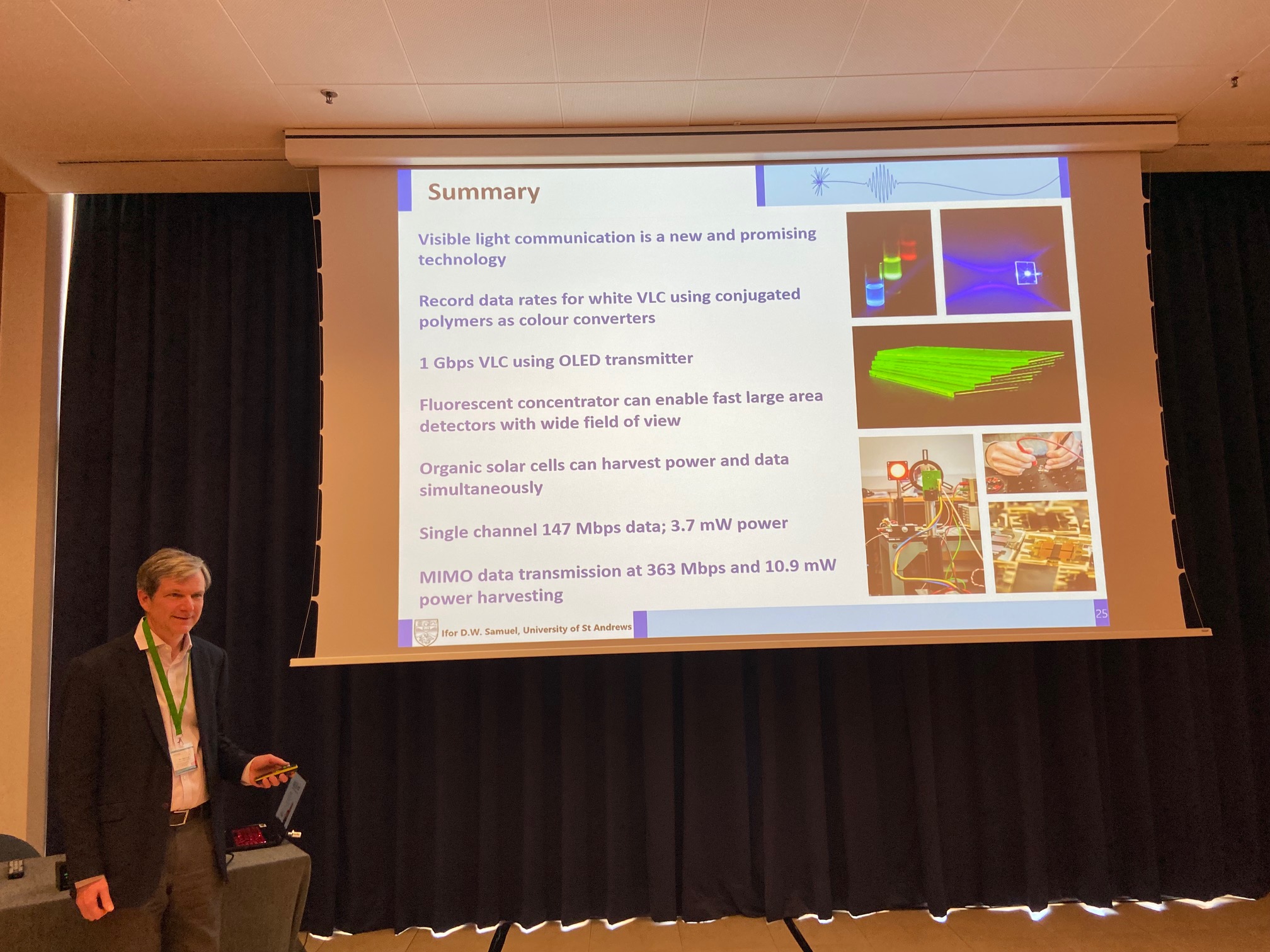
Whilst in Barcelona, Ifor presented work showing that organic solar cells can harvest both power and data at the MATSUS conference organized by nanoGe.
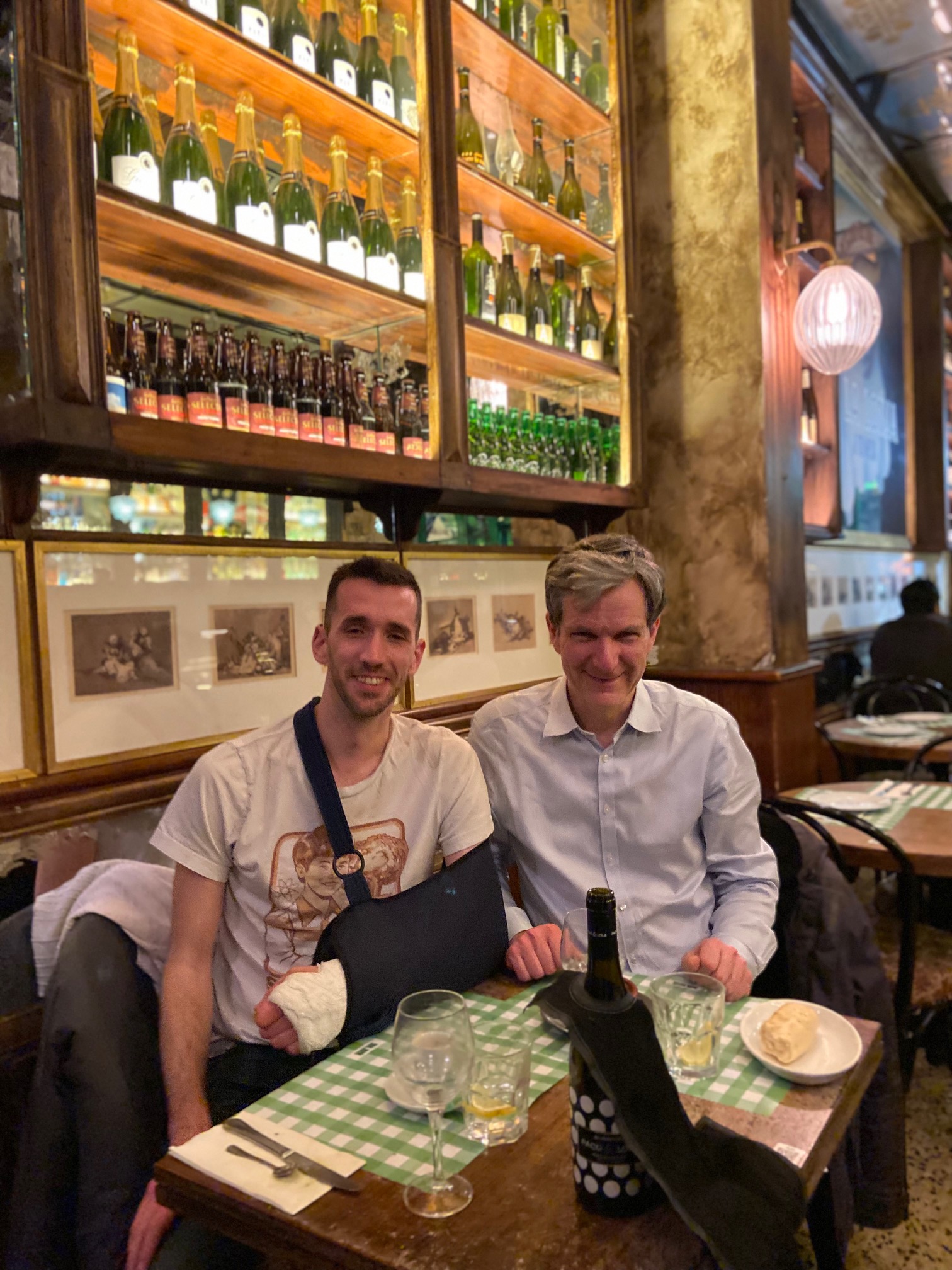
Ifor was pleased to meet former group member Guy Whitworth for dinner in Barcelona. Guy has been working at ICFO, a leading optics institute, following his PhD in St Andrews and returns to the UK on a fellowship…
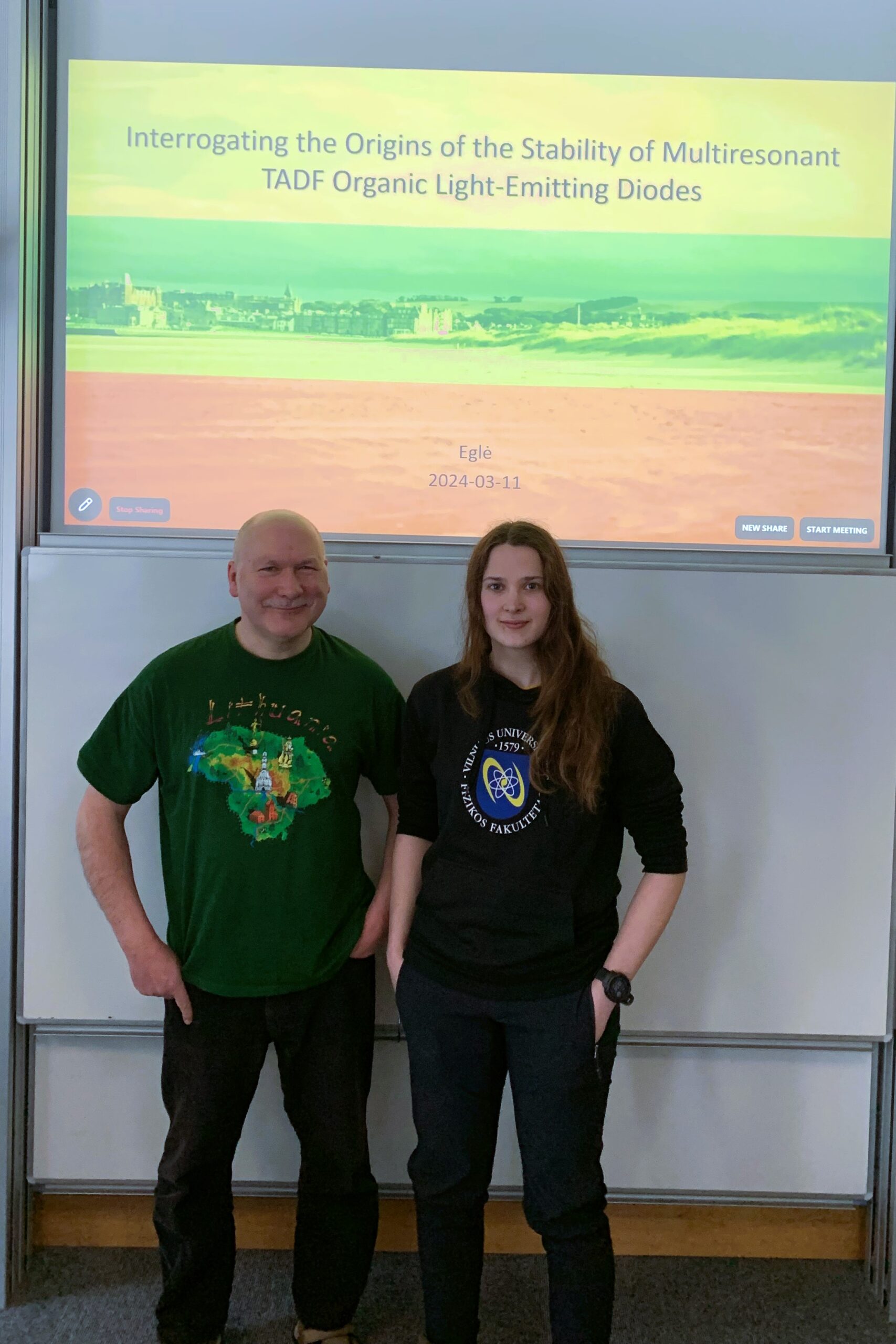
Today the group is celebrating Lithuanian Independence Restoration day with Arvydas and Eglė. Here they are after independently giving talks at group meeting this morning.

Over the past few weeks members of the OSC have been attending the Dundee Science Centre to engage with the public as part of the Dundee Science Festival.
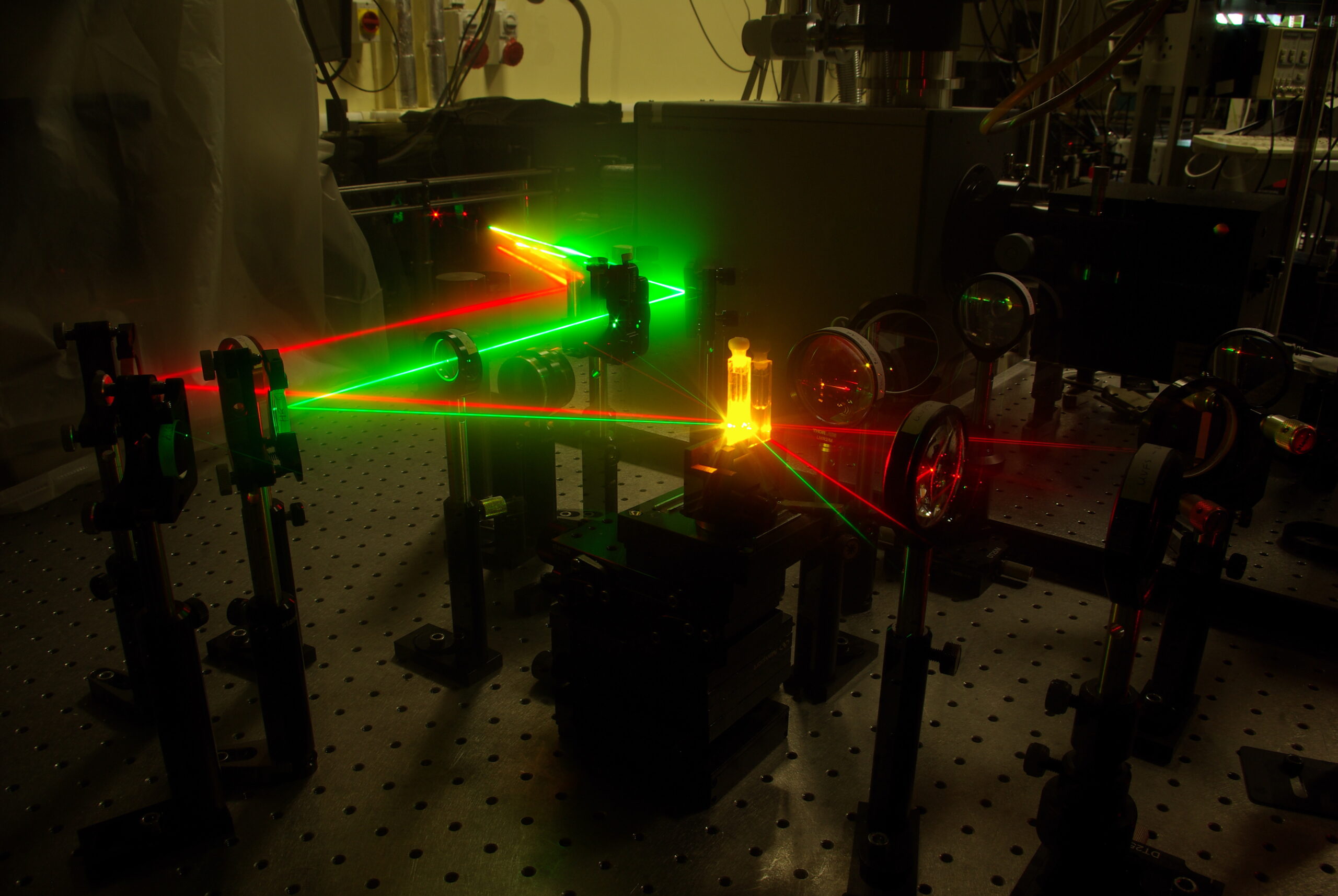
We are once again delighted that students from the school of Physics and Astronomy are joining us for their final year projects. We have five students this year who will be researching a range of topics from “photon…
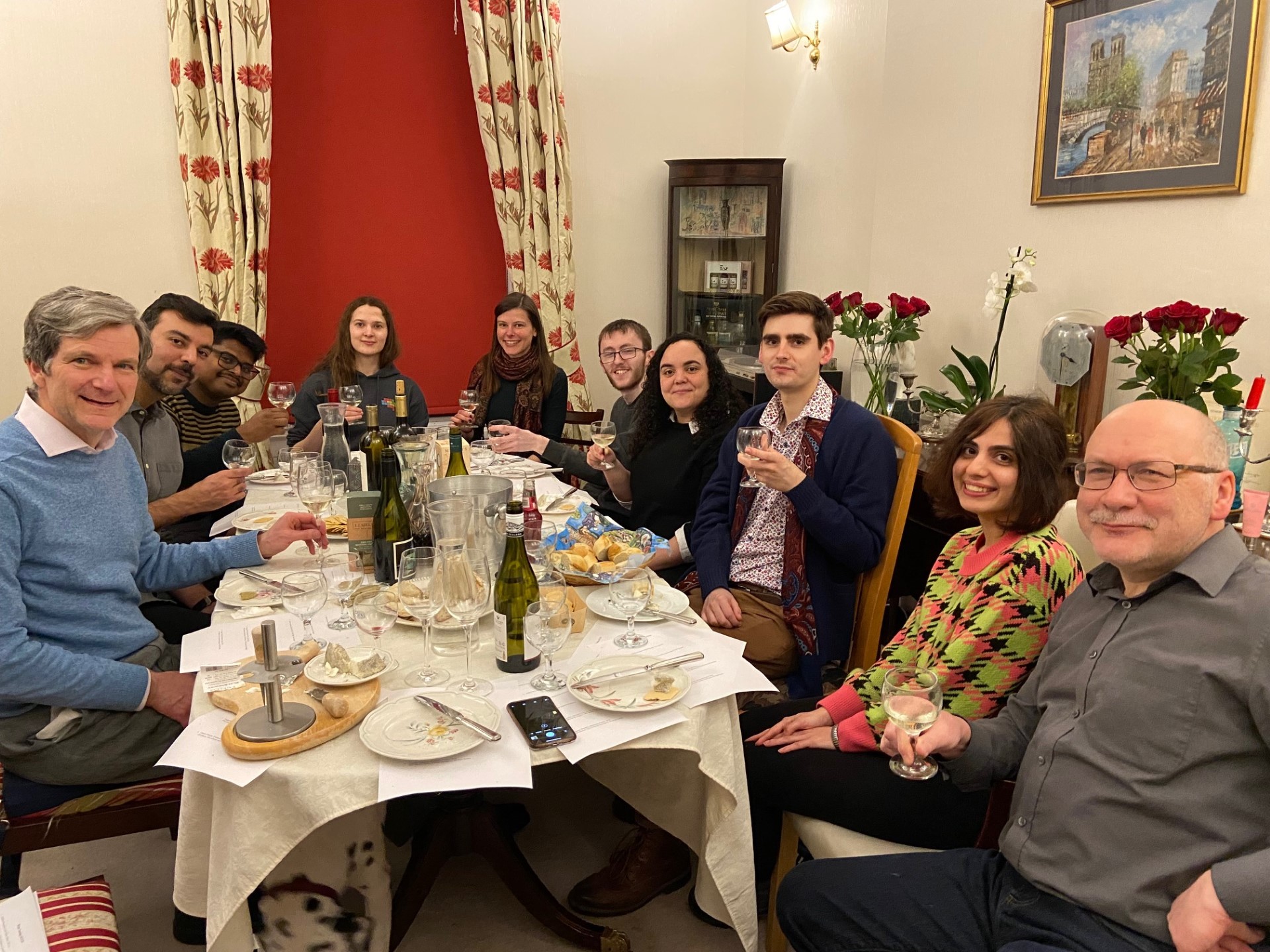
Last Friday some of the members of the OSC got together to taste some excellent wine and cheese.